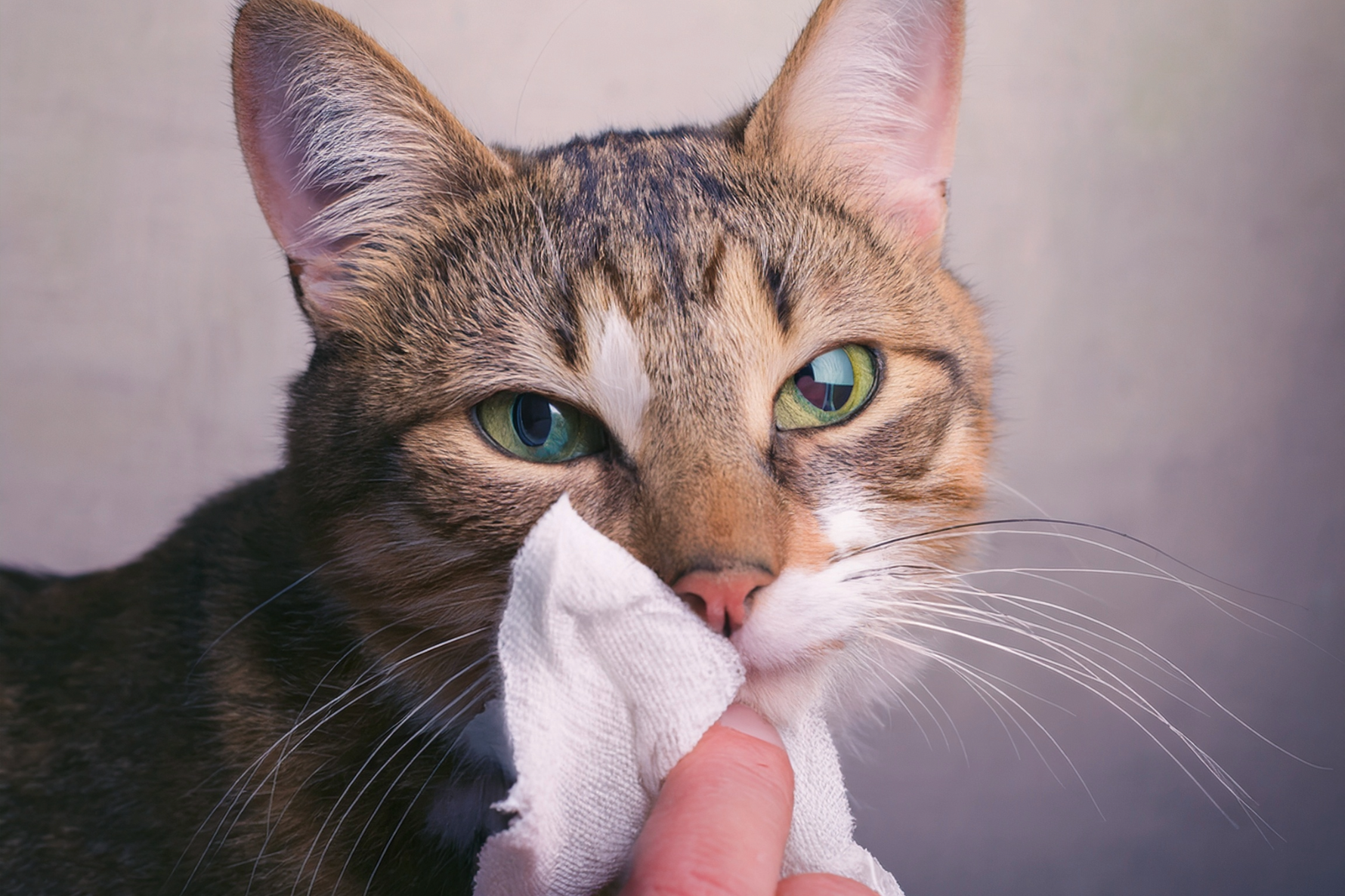
Unfortunately, it’s hard to stop cat allergies, especially if you don’t know what your cat is allergic to. Cats are curious by nature, which makes it even harder to control.
But you can lower the risk by:
You can help lower your cat’s allergy risks by:
-
Keeping your cat indoors to limit exposure.
-
Talking to your vet about:
-
Possible side effects of medicines.
-
What to do in an emergency (for example, bathing a cat right away if they have allergic skin problems).
-
Whether splitting vaccines or giving diphenhydramine before vaccines is a good idea.
-
-
Checking your cat often. Look for bumps, insect stingers, or small wounds so you can get help quickly.
-
Avoiding known allergens. Each exposure can make the reaction worse.
-
Using strict flea control. Fleas can trigger strong allergic reactions.
-
Following a vet-recommended diet and not changing food without advice.
Cat Allergic Reaction FAQs
What are the symptoms of an allergic reaction in cats?
The signs can be different for each cat, but they often happen within seconds or minutes.
They may include:
-
Vomiting or diarrhea
-
Hives or itchy skin
-
Swelling of the face
-
Trouble breathing
-
Pale gums
-
Collapse or seizures
-
In very serious cases, sudden death
How do I treat my cat’s allergic reaction?
Stay calm. Allergic reactions can be life-threatening.
Remove the cause if it’s safe to do so.
Go to the nearest emergency vet right away.
Call ahead so the vet team is ready when you arrive.
Can I give my cat anything for an allergic reaction?
No. Do not give your cat medicine unless your vet tells you to. It could make things worse or interfere with treatment.
👉 Always get veterinary help immediately.
References
Dr. Michael Kearley, DVM Veterinarian
https://www.petmd.com/cat/general-health/signs-of-cat-allergic-reaction
Catlien
-

The Language of Cat Tails
Regular price £0.00 GBPSale price £0.00 GBP Regular priceitem / per -

Why Does My Cat Try to Bury Its Food?
Regular price £0.00 GBPSale price £0.00 GBP Regular priceitem / per -

Why Does My Pet Follow Me to the Loo
Regular price £0.00 GBPSale price £0.00 GBP Regular priceitem / per -

Why Do Cats Love Boxes?
Regular price £0.00 GBPSale price £0.00 GBP Regular priceitem / per
-

7 Signs of a Cat Allergic Reaction
Regular price £0.00 GBPSale price £0.00 GBP Regular priceitem / per -

How To Prevent Cat Allergic Reactions
Regular price £0.00 GBPSale price £0.00 GBP Regular priceitem / per
-

Can Cats Eat Berries?
Regular price £0.00 GBPSale price £0.00 GBP Regular priceitem / per -

8 Things Cats Should Never Eat
Regular price £0.00 GBPSale price £0.00 GBP Regular priceitem / per -

Is Pumpkin Good for Cats?
Regular price £0.00 GBPSale price £0.00 GBP Regular priceitem / per -

Should You Share Ham with Your Cat?
Regular price £0.00 GBPSale price £0.00 GBP Regular priceitem / per
-

The Language of Cat Tails
Regular price £0.00 GBPSale price £0.00 GBP Regular priceitem / per -

Why Does My Cat Try to Bury Its Food?
Regular price £0.00 GBPSale price £0.00 GBP Regular priceitem / per -

Why Does My Pet Follow Me to the Loo
Regular price £0.00 GBPSale price £0.00 GBP Regular priceitem / per -

Why Do Cats Love Boxes?
Regular price £0.00 GBPSale price £0.00 GBP Regular priceitem / per
-

My Cat Won’t Drink Water—What Should I Do?
Regular price £0.00 GBPSale price £0.00 GBP Regular priceitem / per -

Cat Owners Must Know: Safe Alone Time for Cats
Regular price £0.00 GBPSale price £0.00 GBP Regular priceitem / per -

Rather Starve Than Eat? 3 Reasons Your Cat Is Picky About Food
Regular price £0.00 GBPSale price £0.00 GBP Regular priceitem / per -

4 Tips to Improve Your Cat’s Picky Eating Habits
Regular price £0.00 GBPSale price £0.00 GBP Regular priceitem / per













